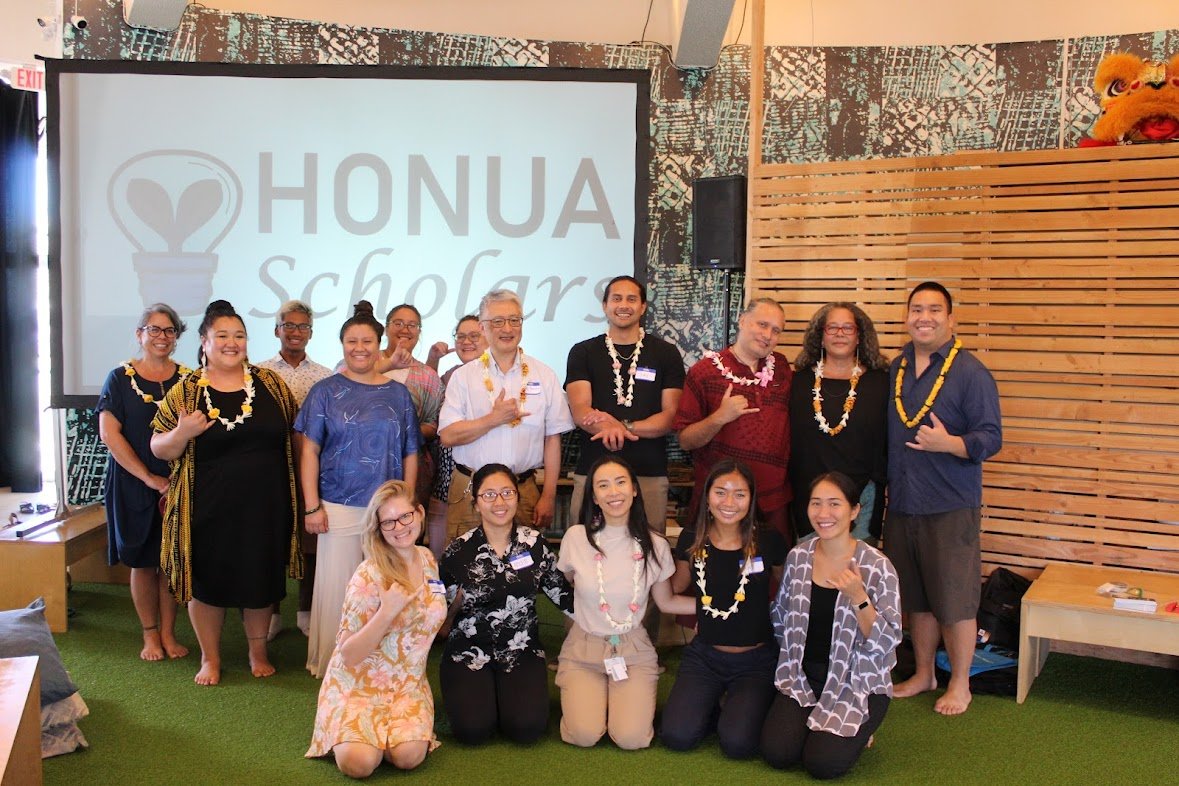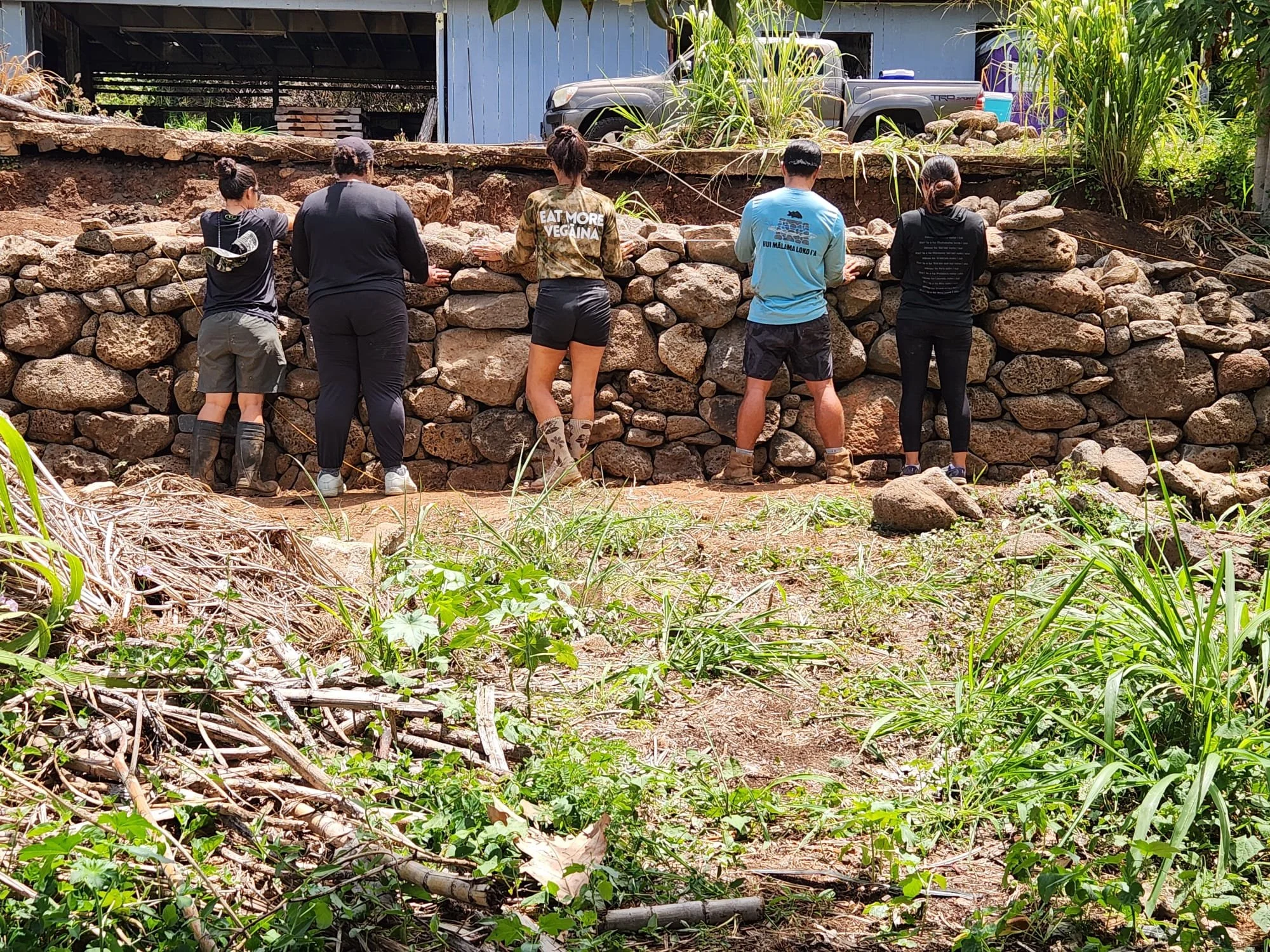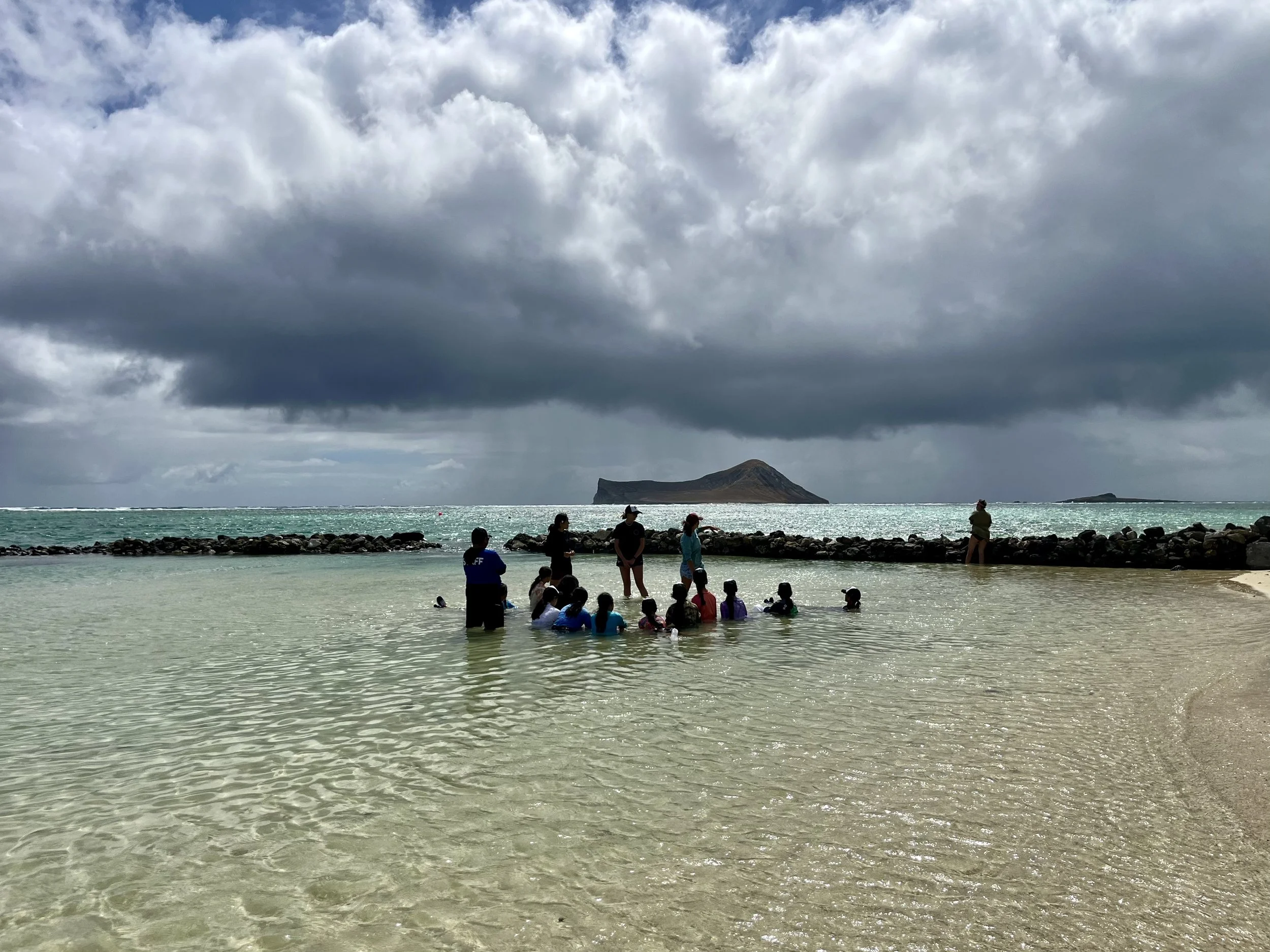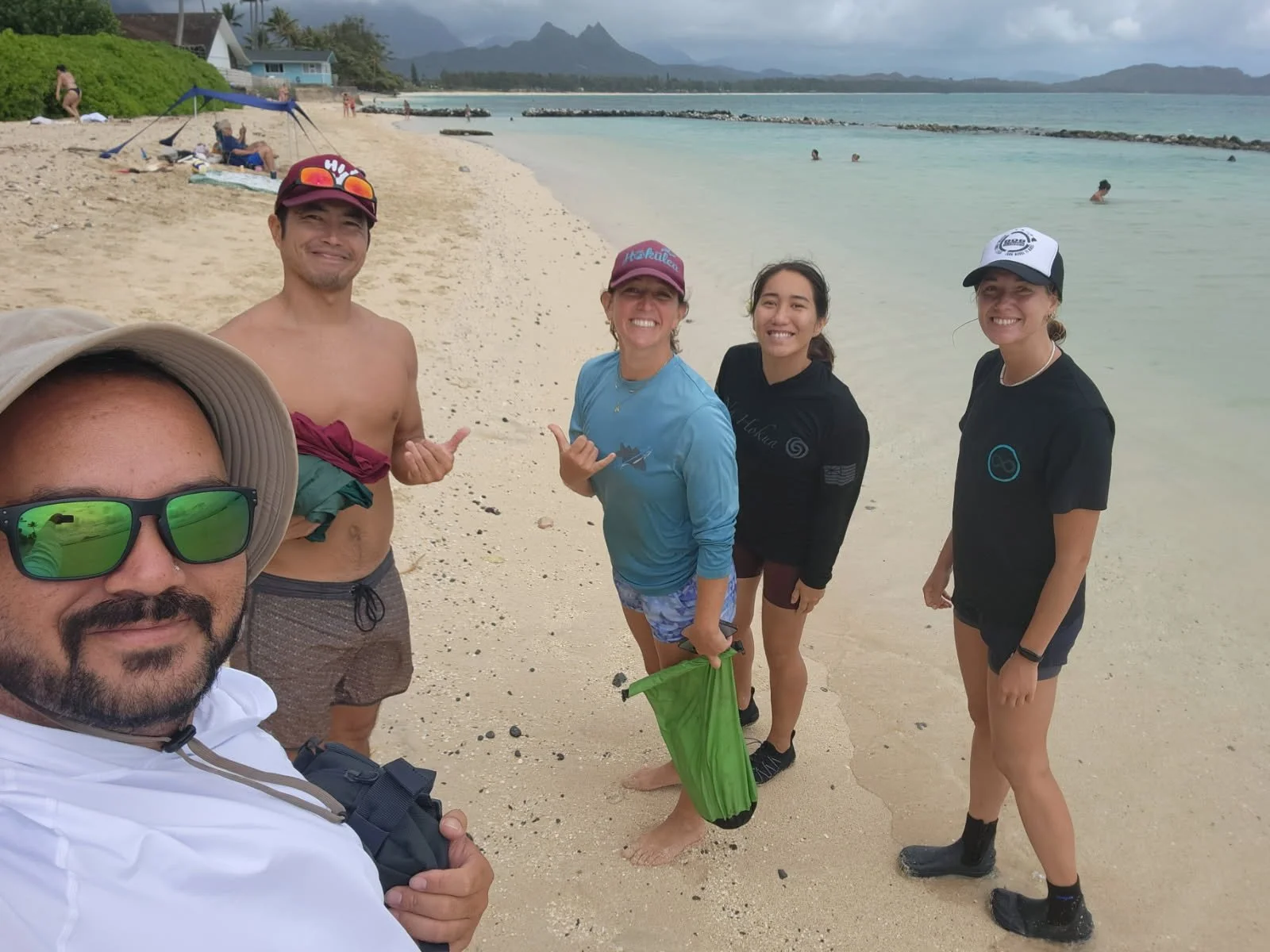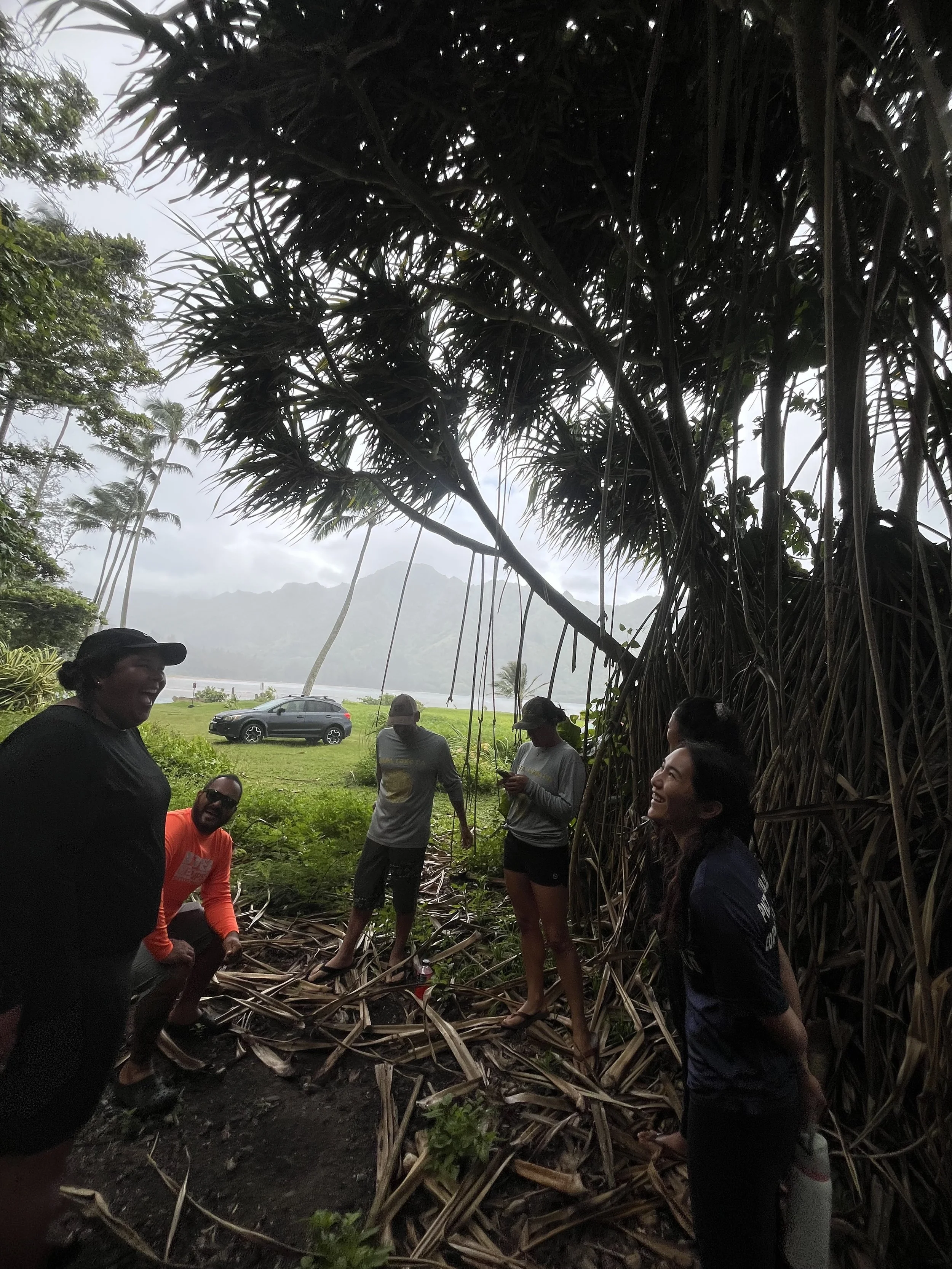Lawe i ka maʻalea a kūʻonoʻono.
Take wisdom and make it deep.
— ʻŌlelo noʻeau no. 1957
I believe service is inseparable to my work in education. At a broad level, my research agenda and teaching philosophy lead me to support widespread efforts for diversity, equity, and inclusion by pushing back against deficit mindsets about Indigenous Peoples in scholarship, curriculum, and pedagogy. However, it is my wahine ʻŌiwi and first-generation college graduate identities that inspire me to engage in activities within and beyond the boundaries of the academy that contribute to a sense of belonging and community among those holding historically underrepresented identities in higher education.
This page includes examples of academic, community, and political engagement and resources from different organizations committed to serving Indigenous youth and preserving ancestral wisdom for future generations.
Academic Engagement
Through internships, volunteer work, and paid positions, I have been able to serve Indigenous youth interested in continuing their schooling beyond the secondary level as well as students who are passionate about STEM (science, technology, engineering, math). These examples highlight the ways that I engage with academic communities to improve student pathways to college and STEM careers.
-

Photo from The College Board's Indigenous College Planning Guidebook (2019, p. 5)
-

As a summer intern for The College Board, I collaborated with other Indigenous student interns on editing an Indigenous College Planning Guidebook, which dispels common myths about the college application process and shows Native students and families how their ancestral beliefs and practices can be used to help them effectively navigate standardized testing, personal statements, and financial aid challenges.
-

Native interns Monica Sekaquaptewa (Navajo/Hopi), Kendall Harvey (Navajo), Megan Tom (Navajo), and program supervisor Rhonda Clark (2017)
Since 2021, I have volunteered with HONUA Scholars, a non-profit, Hawai'i-based organization that offers free programming, professional development, and one-on-one tutoring for K–12 and college students interested in STEM (science, technology, engineering/education, mathematics). I originally served as an evaluation coordinator and designed culture-based surveys to obtain feedback from students, committee members, and volunteers to improve programming. In 2023, I organized the organization's annual proposal competition, which asked students to propose solutions to community-specific problems, recommend ways for science and the natural world to coexist, or examine relationships between Hawaiian culture and western science. I organized the competition again in 2024, collaborating with HONUA Scholars' program director and executive director on writing a prompt and finding sponsors.
During the summer of 2024, I began analyzing demographic data for HONUA Scholars for a series of reports on Native Hawaiian and Pacific Islander (NHPI) enrollment in the U.S. and Hawaiʻi. I'm currently examining differences in college and career readiness indicators among NHPI students attending high- and low-NHPI enrollment schools in Hawaiʻi's public K–12 system.
Resources: STEMinar series, Honua Hangouts, Dialogue Series
HONUA Scholars team at Laulima Symposium (2023)
Proposal Competition Flyer (2025)
Proposal Competition Info Session (2025)
I previously served as an educational coach for Nā Hokua, a Native-Hawaiian-serving scholarship program housed within the Center on Disability Studies in the College of Education at the University of Hawaiʻi at Mānoa. From November 2023 to June 2025, I’ve coached seven Native Hawaiian community college students in STEM majors, working one-on-one with them on developing and managing academic and career goals, while monitoring their progress on program requirements to obtain stipends at the beginning and end of each semester.
Resources: Career preparation workshops
Visiting Ka Papa Loʻi o Kānewai in Mānoa, Hawaiʻi with Nā Hokua students and staff (2024)
Community Engagement
Widespread social movements often depend on the mobilization and collective actions of communities. While I stay connected with Native Hawaiian communities on Oʻahu through service-learning days, public rallies supporting Indigenous efforts, and Native Hawaiian celebrations like Lā Kūʻokoʻa and the Onipaʻa Peace March, I also engage in efforts to Indigenize teaching networks. This is an important community that holds power in society and must use their positions to effect everyday change for our children and youth.
“Multiracial Students in the University of California: Perspectives from Analysis on Native Hawaiian and Pacific Islander Students”
Panelist at UC AANAPISI Retreat: Celebrating our Collective Action (April 8, 2025)
Indigenous Peoples' Day: Transformative Teaching
In 2022, I spoke on a panel with three Indigenous women on affirming ancestral knowledge in classrooms and the significance of being an anticolonial educator and ally.
Hana for Aloha ʻĀina and the Lāhui Hawaiʻi
Learning from aloha ʻāina kumu and contributing to work for communities and our broader Lāhui Hawaiʻi are lifelong practices and commitments that keep me grounded in Hawaiian knowledge systems. These are a collection of pictures from work days and public events throughout 2025.
Kōkua Kalauao
Kōkua Pāhonu
Kōkua Huilua
Political Engagement
I am cognizant that the personal is political. These are a couple examples of how I use my voice to express my political views and increase awareness about Indigenous histories and Indigenous rights to ʻāina and wai. I also provide additional resources for political activism.
Out-sourced resources for political education

